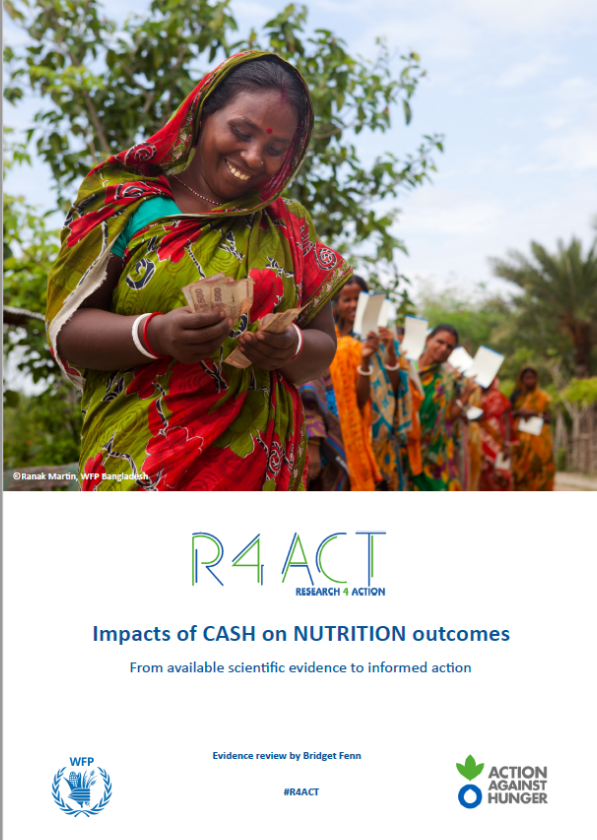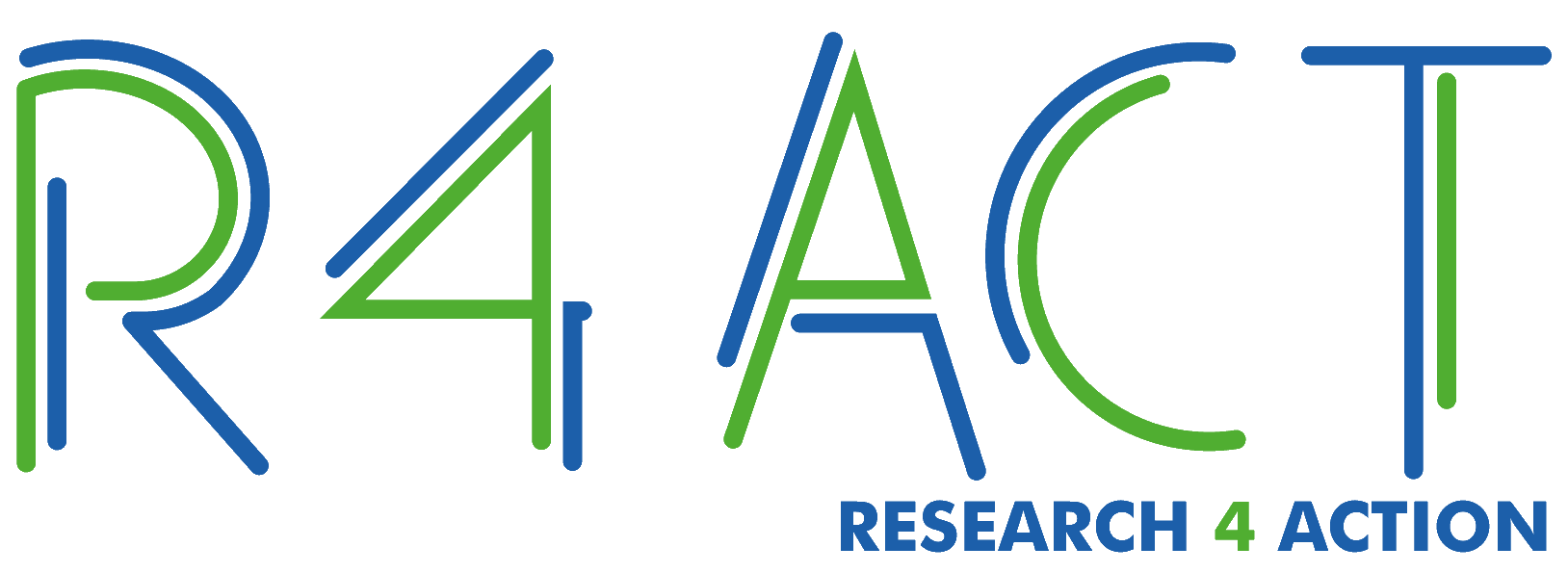Impacts of Cash on Nutrition Outcomes
To tackle the global burden of undernutrition, nutrition-sensitive interventions have been identified to prevent undernutrition in all its forms. Amongst the interventions, cash transfer programmes are one of the key modalities, which will allow scaling-up of intervnetions and broadening the range of impact. A review of the current state of evidence on cash for nutrition outcomes was commissioned by Action Against Hunger and the World Food Programme as an essential preliminary step to develop a set of recommendations on how to support the use of cash transfers for enhanced nutrition outcomes in humanitarian and development programmes.

The literature focusing on the impacts of cash-based transfers on nutrition outcomes is steadily growing. This, along with other influential factors such as the scale up of cash programming through the Grand Bargain agreement of the 2018 World Summit, is the reason why R4ACT’s first edition decided to review: The current evidence and the evidence gaps of the effect of cash-based transfers on nutrition outcomes.
This review was followed by the R4ACT Workshop outlining specific steps that need to be taken to translate recommendations into actions. Finally, two reports two reports on the Impacts of Cash Transfers on Nutrion Outcomes were published : a full report detailing the methodology, findings and recommendations and an operational summary report, focusing more specifically on the key findings and recommendations.
Access reports:https://www.actioncontrelafaim.org/publication/highlights-from-the-research-4-action-workshop-on-cash-and-nutrition/
There is strong evidence that cash transfers are efficient and effective in covering basic needs. They play a role in achieving food security for all.
Bridget Fenn
R4ACT Researcher
The R4ACT Workshop was organized by Action Against Hunger and the World Food programme in November 2017.

R4ACT Workshop
USAID, Save the children, Action Against Hunger (AAH), World Food Program (WFP), Food and Agriculture Organization (FAO), UNHCR, CaLP, CashCap, Minsitry of Health of Nigeria, John Hopkins University and ENN gathered to reflect on the findings of the report written by Bridget Fenn, independent consultant and expert on nutrition and cash issues, on what the evidence says regarding the impact of cash on nutrition.

Workplan
ACF and its partner actively engage in monitoring the implementation of the workplan and the dissemination of the report within the participants’ organizations as well as towards a broader audience. Quarterly calls are scheduled and small working groups set up to work on specific activities of the workplan.
Currently, the first edition of R4ACT on Cash and Nutrition is undergoing the year-long follow up workplan which includes both an internal and external dissemination startegy.
